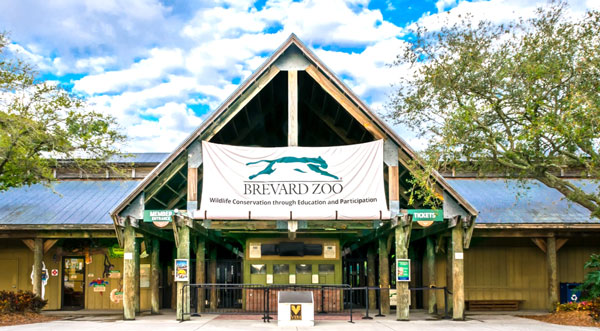Brevard Zoo Welcomes ‘Bakari’ the Zebra, Part of Species Survival Plan from Denver Zoo
By Brevard Zoo // December 29, 2020
Bakari is living behind the scenes while he acclimates to his new home
ABOVE VIDEO: The Brevard Zoo recently welcomed Bakari the Zebra, who is living behind the scenes while he acclimates to his new home. Though initially nervous, he has grown friendlier with his new caretakers over the past several weeks.
Bakari was born at Phoenix Zoo in early 2013 and moved to Denver when he was five years old
BREVARD COUNTY, FLORIDA – Grévy’s zebras have become such beloved members of our Zoo family that it’s hard to remember a time without them, but it wasn’t until 2015 that mares Iggy and Zonka became the first members of their species to live here.
Fellow zebra Lauren joined the herd, known as a “dazzle,” the following year.
The time has come to grow our dazzle once again. Earlier this month, a stallion named Bakari made his way to us from Denver Zoo as part of a Species Survival Plan breeding recommendation.
Bakari is living behind the scenes while he acclimates to his new home. Though initially nervous, he has grown friendlier with his new caretakers over the past several weeks.
He eagerly anticipates training sessions and will approach the fence when keepers enter his field of view. Bakari’s favorite foods are carrots, lettuce, and molasses horse treats.
Unlike mares, who live in social groups, Grévy’s zebra stallions will typically only associate with other members of their species to reproduce.

Bakari is on his own right now and will likely only share space with the females for short, closely monitored periods on a sporadic basis.
Even if they all hit it off immediately, don’t get your hopes up for baby zebras anytime soon. Grévy’s zebras have a gestation period of 13 months!
Bakari—whose name means “noble oath” in Swahili—was born at Phoenix Zoo in early 2013 and moved to Denver when he was five years old. He has sired one colt, who was born in Denver this past May.
Grévy’s zebras are endangered due to habitat loss, human hunting, and competition for resources with domestic hoofstock.
These issues may be exacerbated by the fact that this species is found only in small pockets of Kenya and Ethiopia, restricting it to a much narrower range than the more abundant and commonly known plains zebra.
You can help Grévy’s zebras by contributing to conservation organizations like Grévy’s Zebra Trust, which the Zoo has supported in the past.















